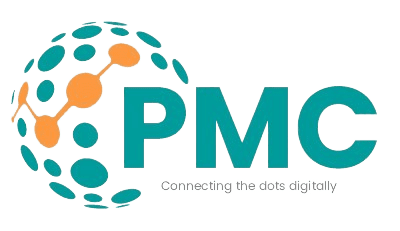
Marketing consultants are professionals who assist businesses in developing and implementing effective marketing strategies. They possess extensive knowledge and experience in various aspects of marketing, including market research, brand development, advertising, public relations, and digital marketing. These experts work closely with businesses to understand their specific needs and challenges, creating tailored marketing plans to address them.
One of the primary responsibilities of marketing consultants is to analyse the effectiveness of marketing campaigns and provide recommendations for improvement. They utilise various tools and techniques, such as analytics, customer feedback, and market research, to track and measure the success of marketing efforts. This data-driven approach enables businesses to make informed decisions about their marketing strategies and investments.
Staying current with industry trends and best practices is crucial for marketing consultants. They continuously monitor changes in consumer behaviour, emerging technologies, and new marketing tools and platforms. This ongoing learning process allows them to provide businesses with the most relevant and effective marketing strategies to achieve their goals.
Marketing consultants often serve as trusted advisors to businesses, offering valuable insights and recommendations based on their expertise and experience. Their guidance can be invaluable for companies navigating the complex and ever-changing marketing landscape. By providing expert support and staying informed about industry developments, marketing consultants help businesses enhance their marketing efforts and achieve greater success in the marketplace.
Key Takeaways
- A marketing consultant plays a crucial role in helping businesses develop and implement effective marketing strategies to achieve their goals.
- Factors such as experience, expertise, and the scope of work can influence the costs of hiring a marketing consultant.
- Marketing consultants may use different pricing models such as hourly rates, project-based fees, or retainer fees, depending on the nature of the work.
- The level of service and deliverables can vary based on the price point, with higher costs typically associated with more comprehensive and strategic services.
- Evaluating the return on investment (ROI) of hiring a marketing consultant involves assessing the impact on sales, brand awareness, and overall business growth.
- When negotiating and budgeting for marketing consultant costs, it’s important to clearly define expectations, set a realistic budget, and consider the long-term value of the services.
- Red flags to watch out for when hiring a marketing consultant include lack of transparency, unrealistic promises, and a lack of relevant experience or track record.
Factors that Influence Marketing Consultant Costs
Experience and Expertise
One of the most significant factors that influence marketing consultant costs is the level of experience and expertise of the consultant. Consultants with a proven track record of success and extensive experience in the industry are likely to command higher fees than those who are just starting out.
Services and Project Scope
The specific services required by the business will also impact the cost of hiring a marketing consultant. For example, businesses that require comprehensive marketing strategy development and implementation are likely to pay more than those seeking more limited services, such as social media management or content creation. The size and scope of the project or campaign will also play a role in determining the cost of hiring a marketing consultant. Larger projects that require more time, resources, and expertise will naturally come with a higher price tag.
Location and Reputation
Another factor that can influence marketing consultant costs is the geographic location of the consultant. Consultants based in major metropolitan areas or regions with a higher cost of living may charge higher fees than those in less expensive areas. Finally, the reputation and brand recognition of the consultant or consulting firm can also impact costs, as well-known consultants with a strong track record may command higher fees than lesser-known professionals.
Different Pricing Models for Marketing Consultants
Marketing consultants typically offer several different pricing models to accommodate the needs and budgets of their clients. One common pricing model is hourly billing, where clients are charged for the actual time spent on their project. This model is often used for smaller or more short-term projects where the scope of work is less defined.
Another popular pricing model is project-based pricing, where clients are quoted a flat fee for a specific project or campaign. This model is often used for larger, more defined projects with a clear scope of work and deliverables. Some marketing consultants may also offer retainer-based pricing, where clients pay a monthly fee for ongoing access to the consultant’s services.
This model is often used for businesses that require ongoing support and guidance from a marketing consultant, such as developing and implementing long-term marketing strategies. Additionally, some consultants may offer performance-based pricing, where their fees are tied to specific outcomes or results achieved through their efforts. This model is often used for businesses looking to align the consultant’s incentives with their own business goals.
What to Expect in Terms of Services for Different Price Points

The level of services provided by a marketing consultant will vary depending on the price point and pricing model chosen by the client. For clients with smaller budgets or those looking for more limited services, hourly billing may be the most appropriate option. With this pricing model, clients can expect to receive targeted support on specific aspects of their marketing efforts, such as social media management, content creation, or ad hoc consulting on marketing strategy.
For clients with larger budgets or those seeking more comprehensive support, project-based pricing may be a better fit. With this model, clients can expect to receive a full range of services tailored to their specific needs, such as comprehensive marketing strategy development, campaign planning and execution, and ongoing support and guidance throughout the project. Clients who opt for retainer-based pricing can expect to receive ongoing support and guidance from their marketing consultant on a regular basis.
This may include regular strategy sessions, campaign planning and execution, performance tracking and analysis, and ongoing recommendations for improvement. Finally, clients who choose performance-based pricing can expect their marketing consultant to be highly focused on achieving specific outcomes or results tied to their fees. This may include a strong emphasis on data-driven decision-making, continuous optimisation of marketing efforts, and a relentless focus on achieving measurable results.
How to Evaluate the ROI of Hiring a Marketing Consultant
Evaluating the return on investment (ROI) of hiring a marketing consultant involves assessing the impact of their services on key business metrics such as revenue growth, customer acquisition, brand awareness, and overall profitability. One way to evaluate ROI is by comparing key performance indicators (KPIs) before and after engaging the services of a marketing consultant. For example, businesses can track changes in website traffic, conversion rates, customer engagement metrics, and sales figures to determine the impact of the consultant’s efforts.
Another way to evaluate ROI is by conducting customer surveys or feedback sessions to gauge the effectiveness of marketing campaigns developed by the consultant. By gathering insights directly from customers, businesses can gain valuable feedback on the impact of their marketing efforts on customer perceptions and behaviours. Additionally, businesses can evaluate ROI by comparing the cost of hiring a marketing consultant with the value generated from their services.
This may involve calculating the incremental revenue or cost savings attributed to the consultant’s efforts and comparing it to their fees.
Tips for Negotiating and Budgeting for Marketing Consultant Costs
When negotiating with a marketing consultant, it’s important for businesses to clearly define their needs and expectations upfront. This includes outlining specific goals, deliverables, timelines, and budget constraints to ensure that both parties are aligned on the scope of work. Businesses should also conduct thorough research on market rates for marketing consultant services to ensure they are getting fair pricing.
This may involve obtaining quotes from multiple consultants or firms to compare costs and services offered. It’s also important for businesses to consider the long-term value of hiring a marketing consultant when budgeting for their services. While upfront costs may seem high, businesses should consider the potential return on investment from improved marketing strategies and outcomes.
Finally, businesses should be open to flexible pricing models and payment structures when negotiating with a marketing consultant. This may include exploring options such as performance-based pricing or retainer-based agreements to align incentives and ensure mutual success.
Red Flags to Watch Out for When Hiring a Marketing Consultant
When hiring a marketing consultant, there are several red flags that businesses should watch out for to ensure they are making a sound investment. One red flag is a lack of transparency or clarity around pricing and deliverables. Businesses should be wary of consultants who are unwilling to provide clear pricing structures or detailed scopes of work upfront.
Another red flag is a lack of relevant experience or expertise in the industry or niche market of the business. Businesses should seek out consultants who have a proven track record of success in similar industries or with similar business challenges. Businesses should also be cautious of consultants who overpromise results or guarantee specific outcomes without sufficient data or evidence to support their claims.
It’s important for businesses to work with consultants who are realistic about what can be achieved within their budget and timeframe. Finally, businesses should be wary of consultants who are not responsive or communicative throughout the hiring process. Effective communication is crucial for successful collaboration with a marketing consultant, so businesses should prioritise working with professionals who are proactive and responsive in their interactions.
In conclusion, hiring a marketing consultant can be a valuable investment for businesses looking to enhance their marketing efforts and achieve greater success in the marketplace. By understanding the role of a marketing consultant, factors that influence costs, different pricing models available, what to expect in terms of services at different price points, how to evaluate ROI, tips for negotiating and budgeting costs, as well as red flags to watch out for when hiring a marketing consultant, businesses can make informed decisions about engaging these professionals to support their marketing goals.
